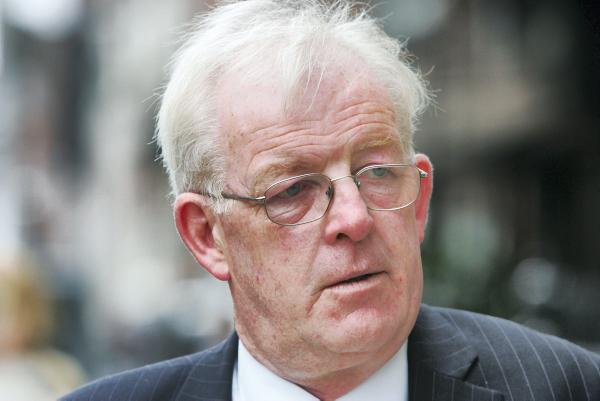This is the weekend for scary stories and I have two to offer: the UK might decide to leave the European Union in 2017 and, quite separately, France could be on the way out of the eurozone in the same year. Either event would have repercussions for Ireland.
The Conservative party in the UK is committed to the holding of an in/out referendum on EU membership if it wins next May’s general election. The referendum would be held after an attempt at renegotiating the terms of UK membership, in 2017, if the Tories win.
The UK exit from the EU thus requires both a Tory victory in 2015 and a referendum vote for exit two years later. Recent opinion polls put the Conservatives and Labour about level in voter preferences, and the Labour party appears to be in some disarray.
Former prime minister Tony Blair has been quoted as predicting privately that Labour will lose and there is a major row with the Scottish wing of the party. The Tories were well behind in the polls a year ago but there is a well-established tendency for the UK’s government party to recover as the general election approaches.
The odds on a Tory victory, and thus of an in/out referendum, are shortening.
French pressure
In France, president Hollande faces re-election in 2017. The latest opinion polls show him trailing badly, in third place behind Marine Le Pen of the Front National and the (as yet unselected) candidate of the centre-right UMP party, who could be ex-president Nicolas Sarkozy.
Le Pen has committed to French withdrawal from the euro on her first day in office. In the French two-round system, the two highest candidates in round one go forward to a final ballot. The recent polls put Le Pen and the UMP candidate well ahead of Hollande.
In a run-off, the polls say that Le Pen would lose, roughly 60/40, to the UMP’s choice. The anti-euro candidate thus looks likely to be in the run-off and with a decent outside chance.
Both a British exit from the EU and a French exit from the euro look odds against at this stage – but not very long odds against. The two events are more or less distinct – one could happen without the other – and either would pose big challenges for Ireland.
French exit from the euro is perhaps less likely than the UK leaving the EU. Marine Le Pen’s father led the Front National to a clear defeat in the second round presidential election of 2007. His daughter, however, seems to have de-toxified the FN in the minds of many voters and her current 40% rating in a hypothetical run-off is within range of victory.
French voters are dissatisfied and volatile. A Le Pen victory would see the collapse of the eurozone – there is no point to a European common currency area without France. But the French 2017 election would likely be preceded by enormous financial turmoil, even if Le Pen eventually lost.
There are other threats to the long-term survival of the common currency but this is surely the most serious. Does Ireland have a strategy to deal with a eurozone break-up?
When Ireland joined the EEC (as it was then known) in 1973, the UK joined on the same day. Ireland has never been in membership of the EU without the UK, which is still our biggest trading partner. If the UK were to leave and Ireland were to remain in the EU, Ireland would be the only Atlantic country in a continental European bloc.
There is every likelihood that the UK would draw closer to North America, leaving Ireland rather short of friends at court. One of the uncomfortable lessons of Ireland’s treatment at the hands of the ECB and our other European partners these last six years is that the Brits are, in the end, the devil you know.
It is hard to believe that the Bank of England would have behaved as the ECB did in relation to the protection of unsecured bank bondholders, at the expense of Irish taxpayers, for example.
If the UK votes to leave the EU in 2017, and it is no longer a remote possibility, Ireland will have some serious decisions to contemplate. A vote to quit would be followed by negotiations on the terms of departure. The Irish Government should insist from the outset on close involvement in these negotiations, on the grounds of vital national interest.
There can be no doubt that a Tory victory at the May 2015 election will concentrate minds in Europe on meeting all reasonable UK demands in order to avoid its exit. It might be a good idea to make it clear – and soon – that Ireland would have to consider all of its options in the event of a UK withdrawal.










SHARING OPTIONS